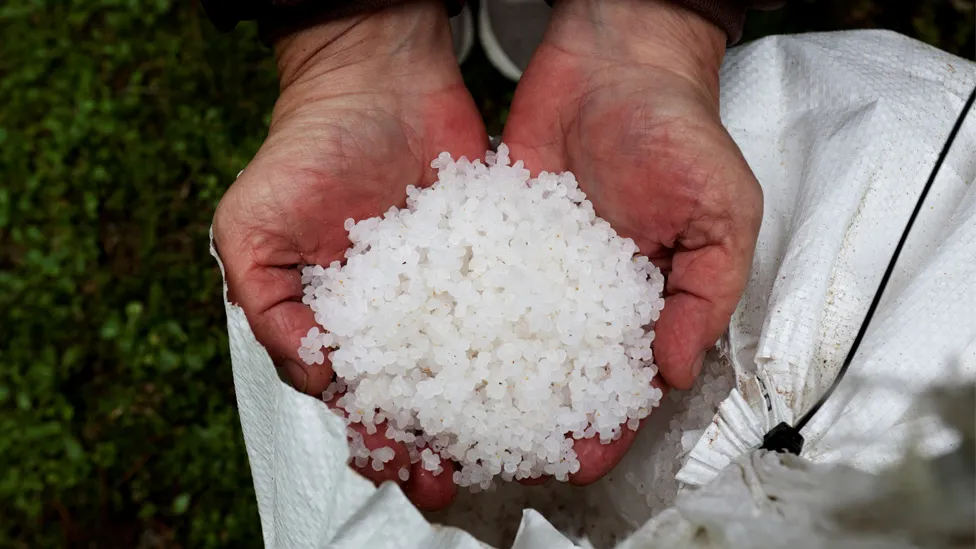People who live near the northern coast of Spain are worried about a big environmental problem. Millions of small plastic pellets have washed up on the shore after falling off a ship.
Over 1,000 bags of small plastic pellets, called nurdles, are thought to have spilled from the Toconao ship, which is run by the Danish company Maersk, on 8 December.
Many people are helping to clean up the spill in the north-west Galicia region.
An alarm has been raised on the Asturias coast in the east.
It’s thought that around six containers fell from the Toconao ship, which is from Liberia. This happened about 80km west of Viana do Castelo in northern Portugal. One of the containers had 26,000kg of pellets. The other containers had clingfilm, tyres, and tomato sauce.
Many beach towns have been seeing lots of small white pellets washing up on the shore since December 13th.
The areas around the port town of Noia in Galicia are the most affected. Also, fishermen in Vigo have been trying to find sacks of pellets in the ocean, but it’s been difficult because of the rough seas.
The authorities are looking into the spill and are worried that it might spread to the eastern coast near the Basque country.
The small plastic balls, which are less than 5mm wide, are hard to clean up and are used to make things like plastic bottles. Volunteers are searching through sand and sifting water to find plastic pellets.
The government in Galicia says that for two weeks, the national government did not tell them about a problem with pollution in the ocean, and did not put a plan into action to deal with it. The government says it told the people in charge of the coast what was happening.
The growing problem with plastics reminds people of Spain’s worst environmental disaster in 2002. A ship called the Prestige broke apart near the Galician coast, causing a spill of over 60,000 tons of heavy fuel oil along the coastline.
Officials say the small balls are made of plastic that won’t harm you. However, people are worried that the large amount of pollution could harm animals, the natural world, and the fishing business in that area.
The Ecologists in Action group says they will complain about the Danish shipping company.
Small plastic pellets called nurdles can be eaten by animals and add to the problem of plastic pollution in the food chain, which can also affect humans.
PET is not able to break down naturally, and any small pieces that are not picked up will stay in the environment for hundreds of years.
About 300 million tons of small plastic pellets called nurdles are made each year. It is believed that about 230,000 tons of waste end up in the oceans.
In 2017, about 2. 25 billion small plastic pellets spilled from a ship parked in Durban, South Africa.
Three years later, 10 tons of pellets fell into the sea near Germany when a container on the MV Trans Carrier was broken in a storm.
Tiny plastic pieces from the South African spill traveled all the way to Western Australia, which is 8,000km away.
Plastic pellet tide washes up on coast of Spain

Leave a Reply